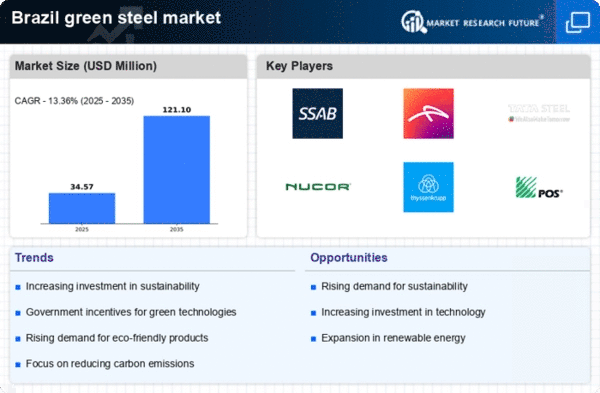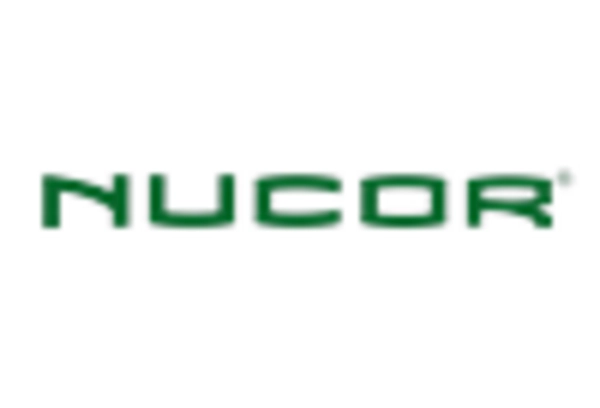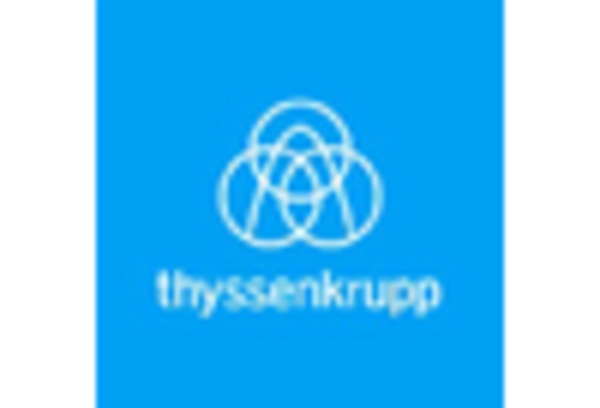The green steel market in Brazil is currently characterized by a dynamic competitive landscape, driven by increasing demand for sustainable materials and stringent environmental regulations. Major players are actively pursuing strategies that emphasize innovation, regional expansion, and partnerships to enhance their market positions. For instance, ArcelorMittal (LU) has been focusing on integrating advanced technologies into its production processes, which not only improves efficiency but also reduces carbon emissions. Similarly, Tata Steel (IN) is investing in research and development to create low-carbon steel solutions, thereby positioning itself as a leader in sustainable steel production. These strategic initiatives collectively contribute to a competitive environment that is increasingly centered around sustainability and technological advancement.In terms of business tactics, companies are localizing manufacturing to reduce transportation emissions and optimize supply chains. The market structure appears moderately fragmented, with several key players exerting influence over their respective segments. This fragmentation allows for a variety of competitive strategies, as companies seek to differentiate themselves through unique offerings and operational efficiencies.
In October Nucor Corporation (US) announced a partnership with a Brazilian renewable energy firm to power its steel production facilities with 100% renewable energy. This strategic move is significant as it aligns with global trends towards decarbonization and positions Nucor as a frontrunner in the green steel sector. By leveraging renewable energy, Nucor not only enhances its sustainability credentials but also potentially reduces operational costs in the long term.
In September Thyssenkrupp (DE) unveiled plans to invest €500 million in a new green steel plant in Brazil, which is expected to utilize hydrogen-based direct reduction technology. This investment underscores Thyssenkrupp's commitment to expanding its footprint in the green steel market and reflects a broader trend of companies investing heavily in innovative production methods. The establishment of this facility is likely to enhance Thyssenkrupp's competitive edge by enabling it to produce steel with significantly lower carbon emissions.
In August Salzgitter AG (DE) entered into a joint venture with a local Brazilian company to develop a new line of low-carbon steel products. This collaboration is indicative of the growing trend towards strategic alliances in the market, as companies seek to combine resources and expertise to accelerate their green steel initiatives. Such partnerships may enhance product offerings and market reach, thereby fostering a more competitive landscape.
As of November the competitive trends in the green steel market are increasingly defined by digitalization, sustainability, and the integration of artificial intelligence in production processes. Strategic alliances are playing a crucial role in shaping the current landscape, allowing companies to pool resources and share knowledge. Looking ahead, it appears that competitive differentiation will evolve from traditional price-based competition to a focus on innovation, technological advancements, and supply chain reliability. This shift may ultimately redefine the parameters of success in the green steel market.
















